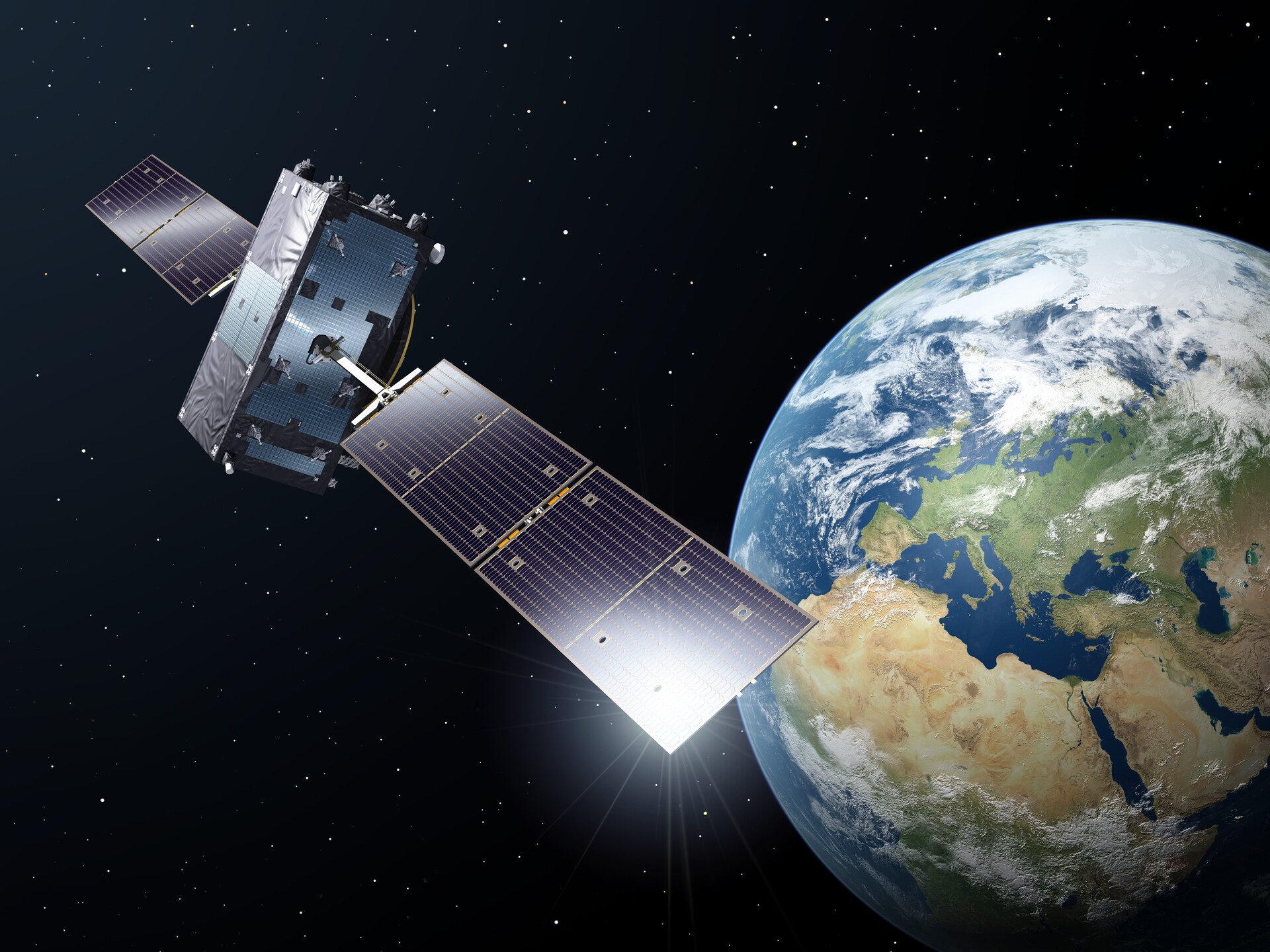Italy
Italy will be the hub of future European satellite constellation Iris-2

The Fucino Space Center will establish the control center for the new European satellite constellation Iris2 for Internet connections.
The Minister of Enterprise and Made in Italy, Adolfo Urso, announced this fact while visiting the center of Telespazio, a joint venture between Italy’s Leonardo (67 percent) and France’s Thales (33 percent). “This is a 50 million euro investment with about 200 new employees, which will effectively double the current Space Center,” Urso anticipated at the event that was also attended by Abruzzo Region President Marco Marsilio (together in the photo), Leonardo’s Chief Space Business Officer Franco Ongaro, Telespazio CEO Luigi Pasquali, and Italian Space Agency (Asi) President Teodoro Valente.
It was February 2023 when the European Parliament almost unanimously approved the proposed regulation establishing the Union’s Secure Connectivity Program for the period 2023–2027. The program aims for the European Union to have its own constellation of five satellites called “Iris2” (Infrastructure for Satellite Resilience, Interconnectivity, and Security), which should ensure secure communication services by 2027.
Iris 2 is the Old Continent’s answer to the Starlink project—the satellite Internet connection service of SpaceX, Elon Musk’s aerospace company—and OneWeb.
And now the Abruzzo space center has been identified at the European headquarters as the site that will house the main three control centers for the new Iris 2 galaxy of satellites.
Italian ministry of economics announced this investment
“We are at the center of Fucino, the most important teleport in the world, for civilian use and to view where the new control center, defined at the European headquarters and located here in Fucino and to be announced this week by the European Commission, will be built,” Urso said during a visit to the Abruzzo space center “Piero Fanti” in the province of L’Aquila. “Our space base is being expanded,” Urso said, “with a new investment that, in terms of resources, is worth 50 million euros aimed at building the facility with the creation of about 200 new direct and indirect jobs. This center will in fact be doubled and will house the main of the three control centers of the new European satellite galaxy Iris2.”
At the Fucino Space Center, the control center of the other key European space program, Galileo, the navigation network analogous to the U.S. GPS, is already in operation.
“We want,” the minister stressed, “Italy to have a leadership role in the space sector.
A really strategic center
He was echoed by the president of Asi: “The choice of the Fucino Space Center derives not only from reasons of opportunity but also from the expertise developed over time by Telespazio, a joint venture between Leonardo (67 percent) and Thales (33 percent).
“A strategic European initiative in an important sector where, in addition to bringing benefits to all, it will ensure resilience and security because it is important for Europe to equip itself with its own tools,” Teodoro Valente illustrated on the sidelines of the event where the Minister of Enterprise and Made in Italy with responsibility for Space, Adolfo Urso, unveiled the announcement of the choice to build the main Iris2 control center at Fucino. “The decision to assign the Iris2 control center here is important for our country,” he added, “and highlights Telespazio’s expertise. The center will be established here not only because of the availability of space and its geographical location but also because of the expertise it has developed over the years.”
Iris-2 , the potential competitor of OneWeb and Starlink
So “Iris2 will be Europe’s answer to the low-orbit constellations that are becoming the future of telecommunications,” explained Franco Ongaro, Leonardo’s chief space business officer, referring to the importance of the new network, which will aim to compete with the Starlink and OneWeb constellations. To have obtained the control center in Italy is the result of years of work as well as “an extension of Leonardo’s range of action because satellite services are the future. “The spaces of the current center will have to be partly expanded; we will need new buildings and probably also new antennas.”
According to the roadmap, Iris2 is expected to become operational in 2027. In fact, last March, Brussels launched a call for tenders to launch this project, which was built on the basis of a public-private partnership. At the end of May, the European Commission selected a consortium consisting of Airbus Defence & Space, Eutelsat, Hispasat, SES, and Thales Alenia Space, also supported by Deutsche Telekom, OHB SE, Orange, Hispasat, Telespazio, and Thales Group, which had to submit initial proposals for design, cost, schedule, and private sector investment.
At the time of the consortium presentation, the companies involved explained that the partnership between these companies will create an integrated European team of excellence in space and telecommunications to optimize the best expertise and capabilities in the field of secure satellite communication solutions.






